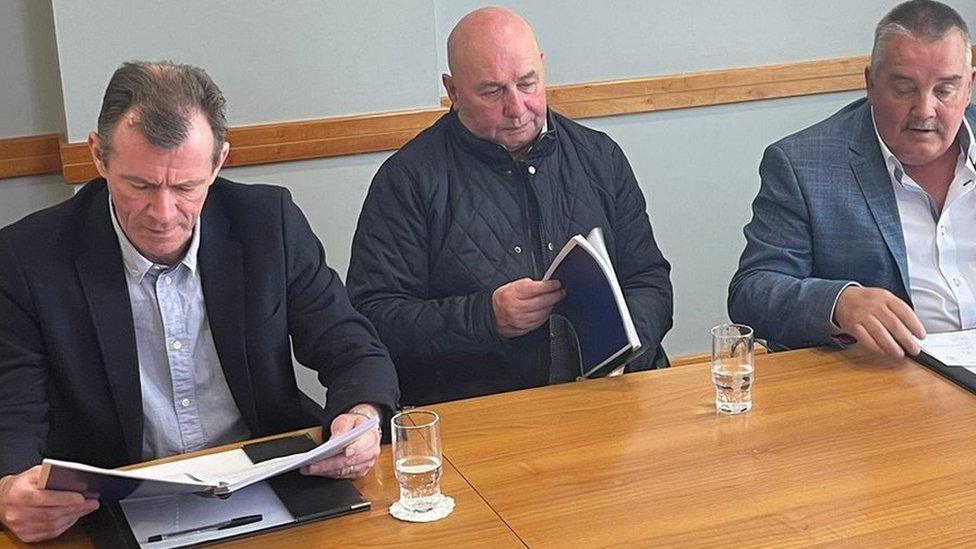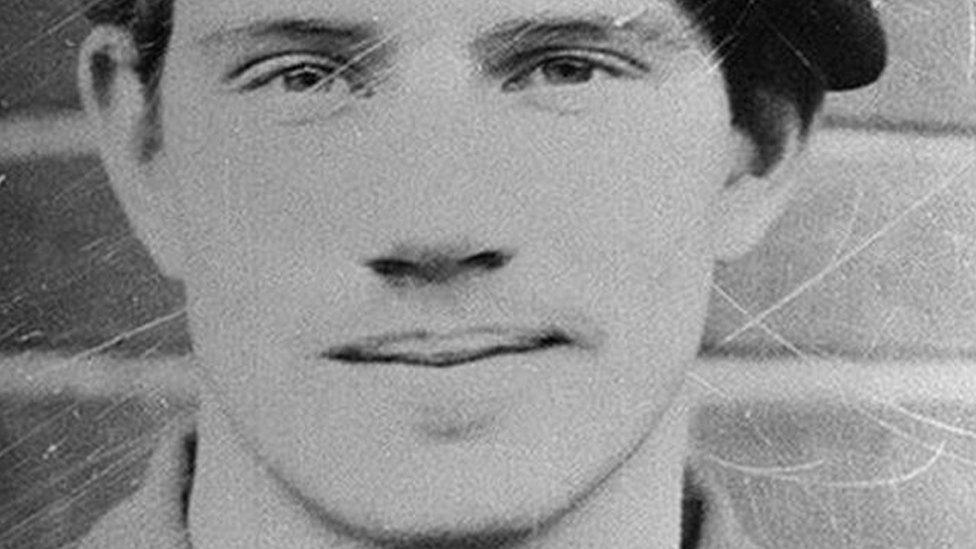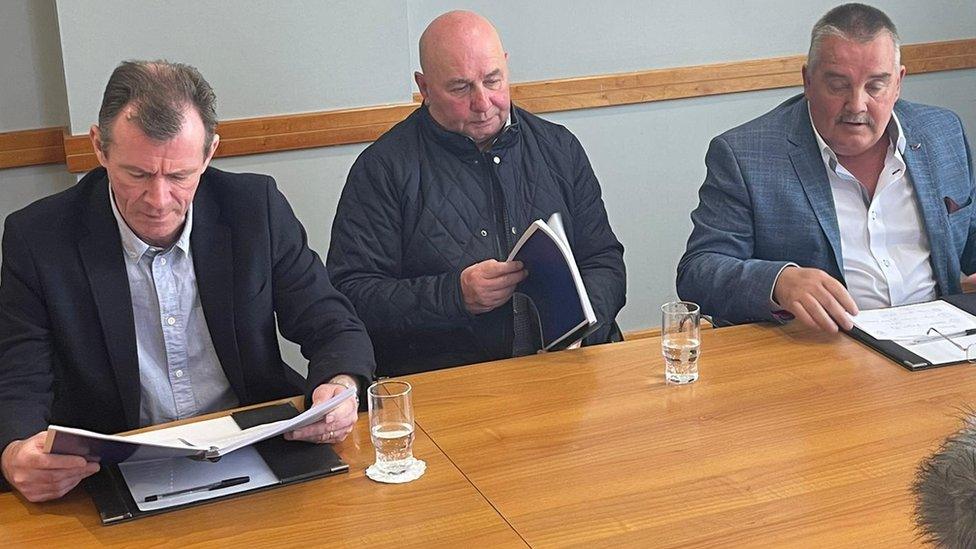Derry Four: Gerard Kelly criticises police union legal challenge
- Published

Gerry McGowan, Michael Toner, Gerard Kelly, pictured reading the Police Ombudsman report last month
A Londonderry man has criticised two police unions for challenging a Police Ombudsman report that cleared his name.
Gerard Kelly was one of four men charged with killing Lt Stephen Kirby in Londonderry in 1979.
Gerry McGowan, Michael Toner, Stephen Crumlish and Mr Kelly, known as the Derry Four, fled Northern Ireland until their acquittal in 1998.
Last month, the Police Ombudsman said they were "coerced and oppressed" into giving murder confessions.
The Northern Ireland Retired Police Officer's Association, with the support of the Police Federation, have now secured a date for a legal challenge to the finding that the men's confessions had been "unfairly obtained" in that report.
The association is also challenging two other Police Ombudsman reports into atrocities committed by loyalist paramilitaries, including the Greysteel massacre in 1993.
Speaking to BBC Radio Foyle's Breakfast Show, Mr Kelly said he just wants closure and to get on with his life.
"I'm bemused and find it astonishing that they are actually taking these cases," Mr Kelly said.
"What do they want to achieve? What do they know now that happened to us in the Strand Road some 40 years ago?
"What do they want to achieve against all these families who have struggled and fought for years and years to get where they got?
"None of us want this, we just want closure."
Mr Kelly has said it feels like their "ordeal is being prolonged" by this move.

Lt Stephen Kirby of the Royal Welsh Fusiliers was shot in February 1979 in Londonderry
Lt Kirby, an officer in the Royal Welsh Fusiliers, was shot by an IRA sniper when he was on foot patrol in the Abercorn Road area of Derry on 14 February 1979.
The four men charged with his murder were all teenagers at the time.
They remained outside of Northern Ireland for more than 20 years before they were acquitted and lived openly in the Republic of Ireland.
During that time no extradition proceedings were ever taken against them.
In her report last month, Police Ombudsman Marie Anderson said the four men should have been given legal representation when detained at Strand Road RUC station.

Ombudsman Marie Anderson was critical of the men being allowed to talk with each other during their detention
BBC Radio Foyle approached the Northern Ireland Retired Police Officer's Association for comment, but they declined.
In a statement, the Police Federation said they were "very conscious of the families of victims affected by the horrific incidents".
They continued: "But for some time now, the federation has been concerned over the questionable approach and tone adopted by the Office of the Police Ombudsman in relation to legacy cases.
"We have seen sweeping conclusions which appear to be based on opinion rather than evidence and which fail to take into context the policing environment and policing practice during an unprecedented terrorist campaign.
"We believe it is time to legally challenge the Office of the Ombudsman which is why we are seeking leave to apply for a judicial review in the High Court."
'Role is investigatory'
A spokesperson for the Police Ombudsman said the ombudsman "makes clear in each public statement the lawful basis for her conclusions and the context for the police actions she is investigating".
"The Court of Appeal ruled that the Ombudsman's role is investigatory.
"Decisions as to whether a police officer's actions amounted to criminality or misconduct are for other forums such as a criminal court or disciplinary panel.
"As stated by the Court of Appeal, the Police Ombudsman's role is limited to acknowledging whether the matters uncovered by an investigation are very largely what the families claimed constituted collusive behaviour.
"Where the Police Ombudsman identifies collusive behaviours she provides clear reasoning for her decision."
- Published10 June 2022
